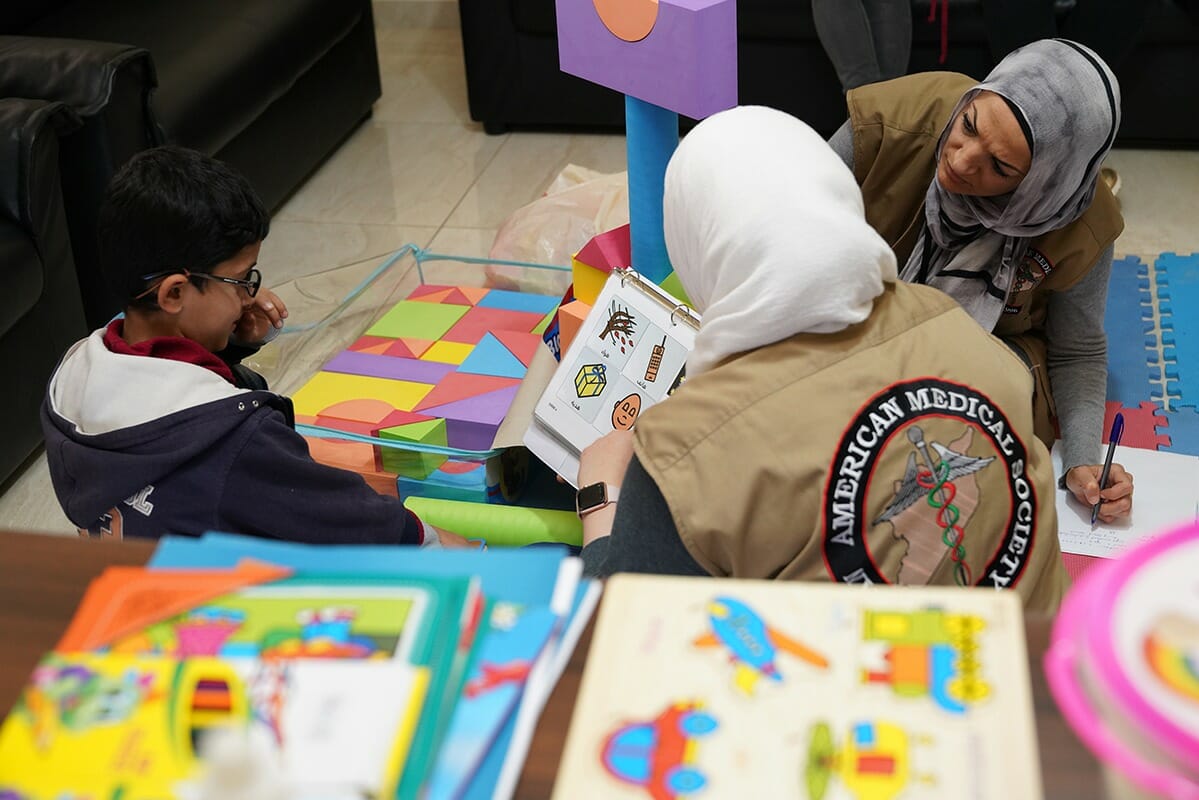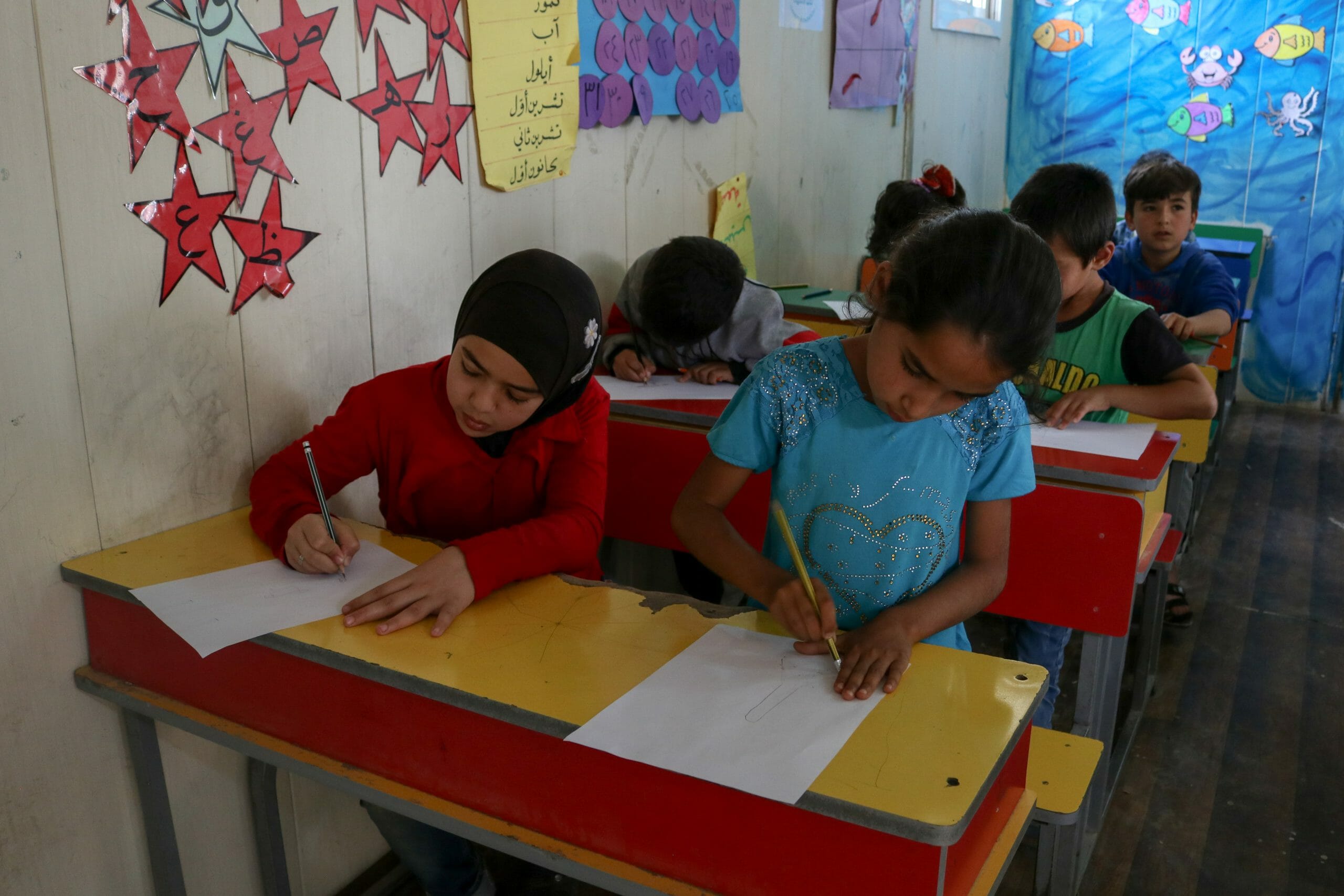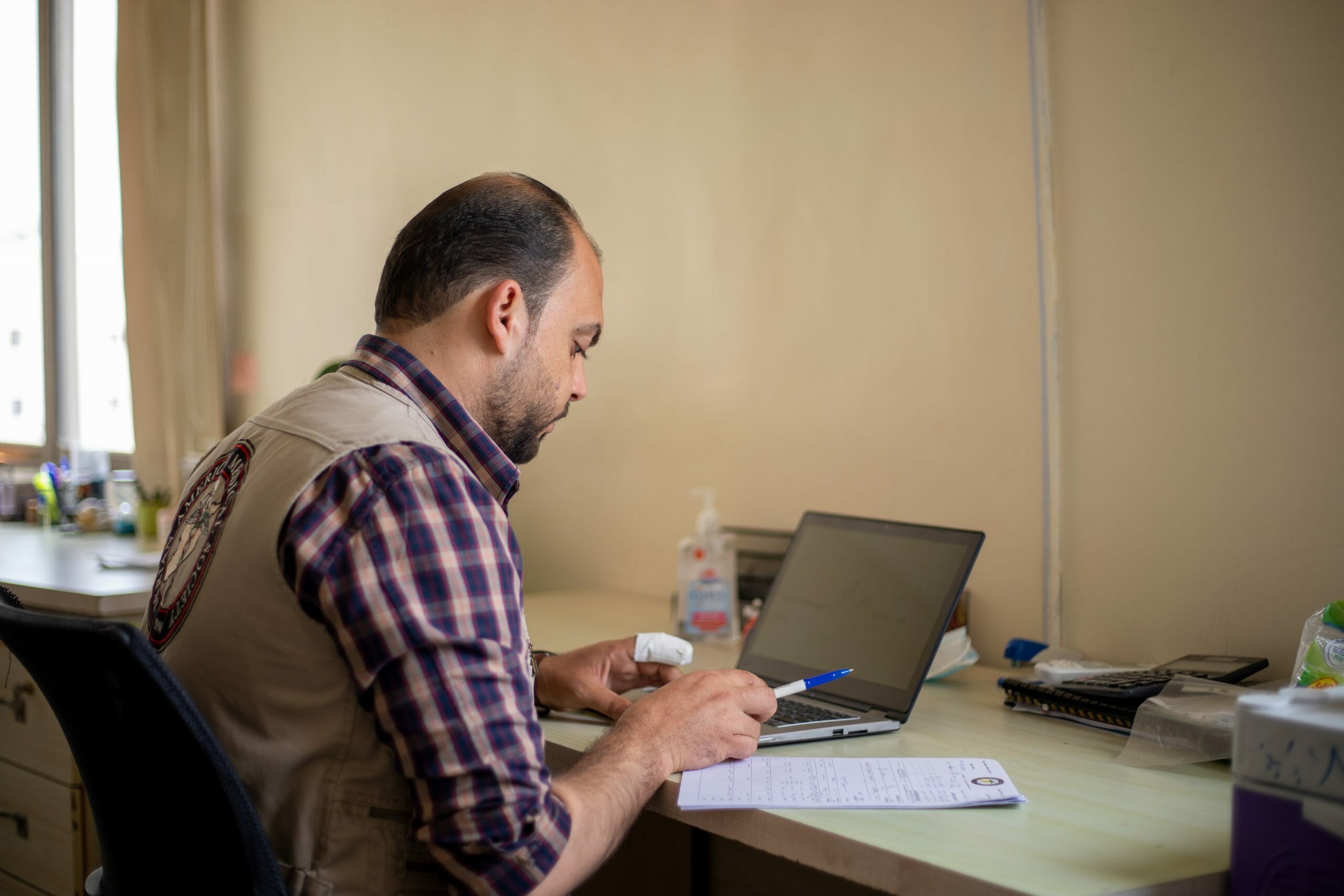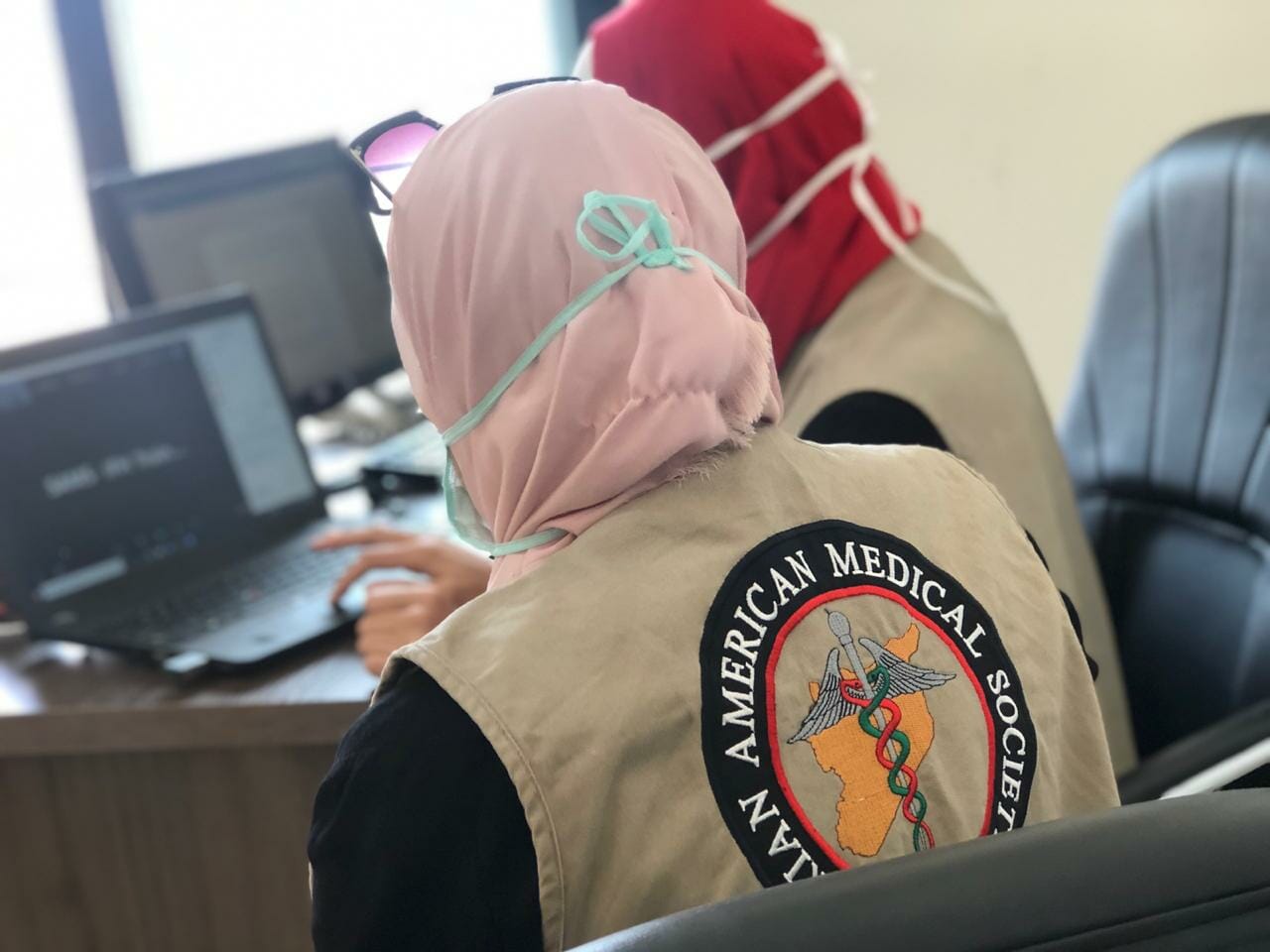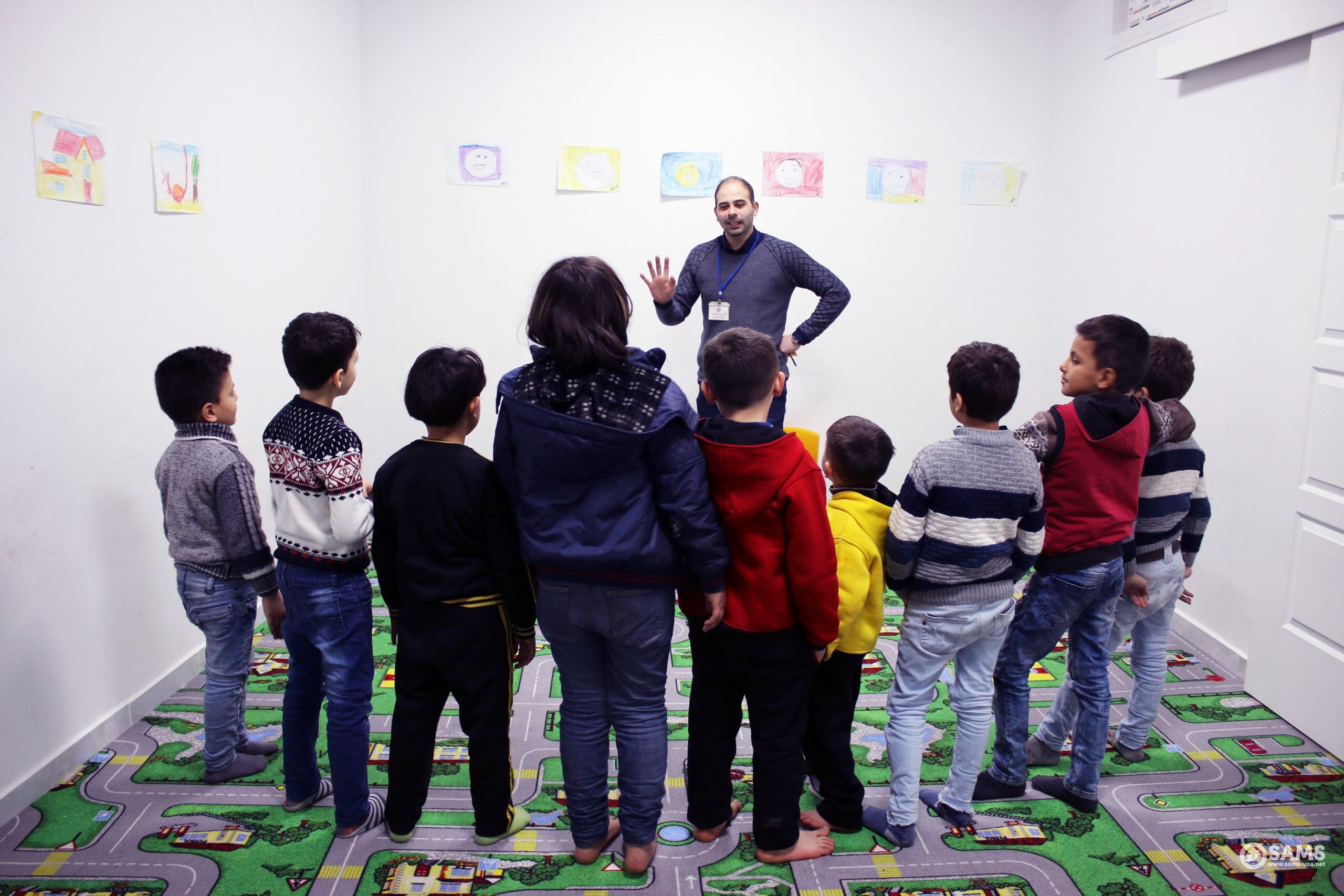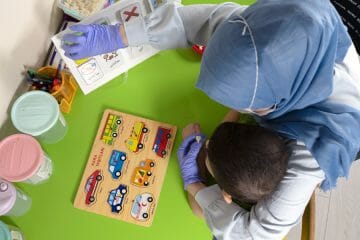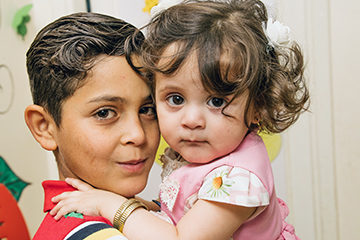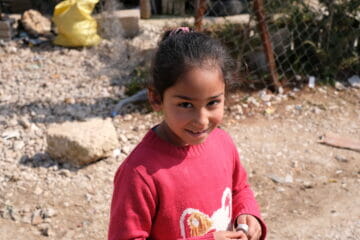Over the last several years, SAMS has established robust mental health and psychosocial support (MHPSS) programs in Syria and host countries, including Jordan, Lebanon, and Turkey. SAMS MHPSS teams are focused on providing different means of care and support for beneficiaries on the ground, including therapy for individuals struggling with conflict or violence-related trauma, anxiety, PTSD, and depression; promotion of human rights and women’s empowerment through workshops and group support programs; specialized case management services for those affected by gender-based violence; psychosocial support programming for children and adolescents; and more.
Syrian Children continue to struggle to overcome gaps in their learning. Children are more likely to earn failing grades or drop out due to untreated psychological trauma.
SYRIA
MHPSS Center: In northwest Syria, SAMS supports an MHPSS center in Idlib that provides telepsychiatric services for individuals with advanced mental health and neurological problems. The local team – which consists of two doctors trained in mhGAP, four psychologists, and a psychiatric nurse – receives remote support from a roster of bilingual, western-trained psychiatrists using WhatsApp or Skype. These professionals help SAMS local providers assess, diagnose, and manage patients through set clinic hours and an on-call schedule. Medication management is an essential part of this program, and the medications are given free of charge. This MHPSS center, along with other health facilities throughout the northwest managed by SAMS, also implements mental health assessment, psychosocial support, and training in mhGAP, as well as the establishment of a secure supply chain of psychiatric medications.
Safe Spaces: SAMS manages eight safe spaces for women and girls, which provide them with psychosocial support, protection services, women’s empowerment trainings, and case management for those affected by gender-based violence (GBV). In two of these centers, psychiatrists work alongside the physiotherapy team to provide MHPSS support for survivors of explosive hazards incidents and other war-related injuries.
Human Rights: Through a partnership with Lawyers & Doctors for Human Rights, SAMS is working to raise the voices of Syrians within justice and accountability mechanisms. The main objectives of this project include advocacy against human rights violations with a focus on the targeting of health facilities and medical staff; legal capacity building for Syrians and referrals to justice and accountability platforms; and comprehensive case management services for survivors of human rights violations. Services for survivors are offered at an additional eight safe spaces that are located within SAMS health facilities. Within these safe spaces, a specialized team of psychosocial workers and caseworkers provides mental health and psychosocial support, GBV case management, assistance with documentation, and referrals to available protection services.
80% of Syrian refugee children had suffered a family death and 60% have endured physical attacks. More than half of all Syrian children have PTSD symptoms. (UNHCR)
CETA Training: SAMS is recruiting women living in the governorates of Aleppo and Idlib to be trained as mental health counselors. Once trained, these counselors will use a transdiagnostic intervention program called the Common Elements Treatment Approach (CETA) to provide psychosocial support for children and adolescents within their communities, under remote supervision from CETA-trained specialists at Johns Hopkins University and the Restart Center in Lebanon. The CETA intervention was designed to expand access to mental healthcare in low-resources settings by training non-specialists to treat depression, anxiety, substance use, trauma, and stress-related disorders. This project is supported by Creating Hope in Conflict: A Humanitarian Grand Challenge; a partnership of USAID, The UK Government, the Ministry of Foreign Affairs of the Netherlands, and Global Affairs Canada, with support from Grand Challenges Canada.
JORDAN
MHPSS Outreach: SAMS has a team of MHPSS and GBV specialists based in Amman and Irbid that provide outreach and referral services for refugees and their neighbors living outside of camps. The services include in-home assessments of vulnerable households to determine the most critical needs; referrals for beneficiaries to receive essential services; individual psychotherapy; medication management by a psychiatrist; and a series of psychoeducation sessions, GBV-awareness workshops, and group support programs which are hosted at local community centers. The workshops cover a range of topics such as stress management, sleep problems, bullying, self-esteem, and communication skills. SAMS has also conducted assessments of training needs at local ministries and CBOs in order to build capacity and improve the quality of community-based care. These initiatives are funded with generous support from the Schooner Foundation.
LEBANON
Support for Youth: In the Beka’a Valley and Arsal, SAMS is implementing a facilitated psychosocial support program for adolescents called the Helping Hand. In this program, psychosocial workers lead the youth through a digital game that is available to them on a freely downloadable app. This game helps the youth learn about healthy coping strategies and cognitive-behavioral techniques while also building peer connections with others in their community. By creating a low-pressure, high support environment, the Helping Hand program helps youth build resilience while avoiding the barriers of mental health stigma. This project is supported by Creating Hope in Conflict: A Humanitarian Grand Challenge; a partnership of USAID, The UK Government, the Ministry of Foreign Affairs of the Netherlands, and Global Affairs Canada, with support from Grand Challenges Canada.
Only 15% of refugees in Lebanon say mental health support is available for them. Among displaced Syrians, in Idlib the figure falls to 1%.
TURKEY
Autism Services: In Istanbul, SAMS is partnering with the Take My Hand Social Assistance Association to provide specialized behavioral support services for Syrian refugee children with Autism. The program uses an applied behavioral analysis (ABA) approach to provide these youth with development and learning sessions that are tailored to their needs. This includes sessions on expressive speech, self-care, play, gross motor skills, fine motor skills, imitation, literacy, and sensory integrative therapy. The program also provides extra support for the caregivers of autistic children through consultation, self-care activities, psychological support services, and psychoeducation workshops. These services were able to be continued during the COVID-19 lockdowns through the development of a phone app that helps caregivers use the ABA approach at home and receive monitoring from support staff.

